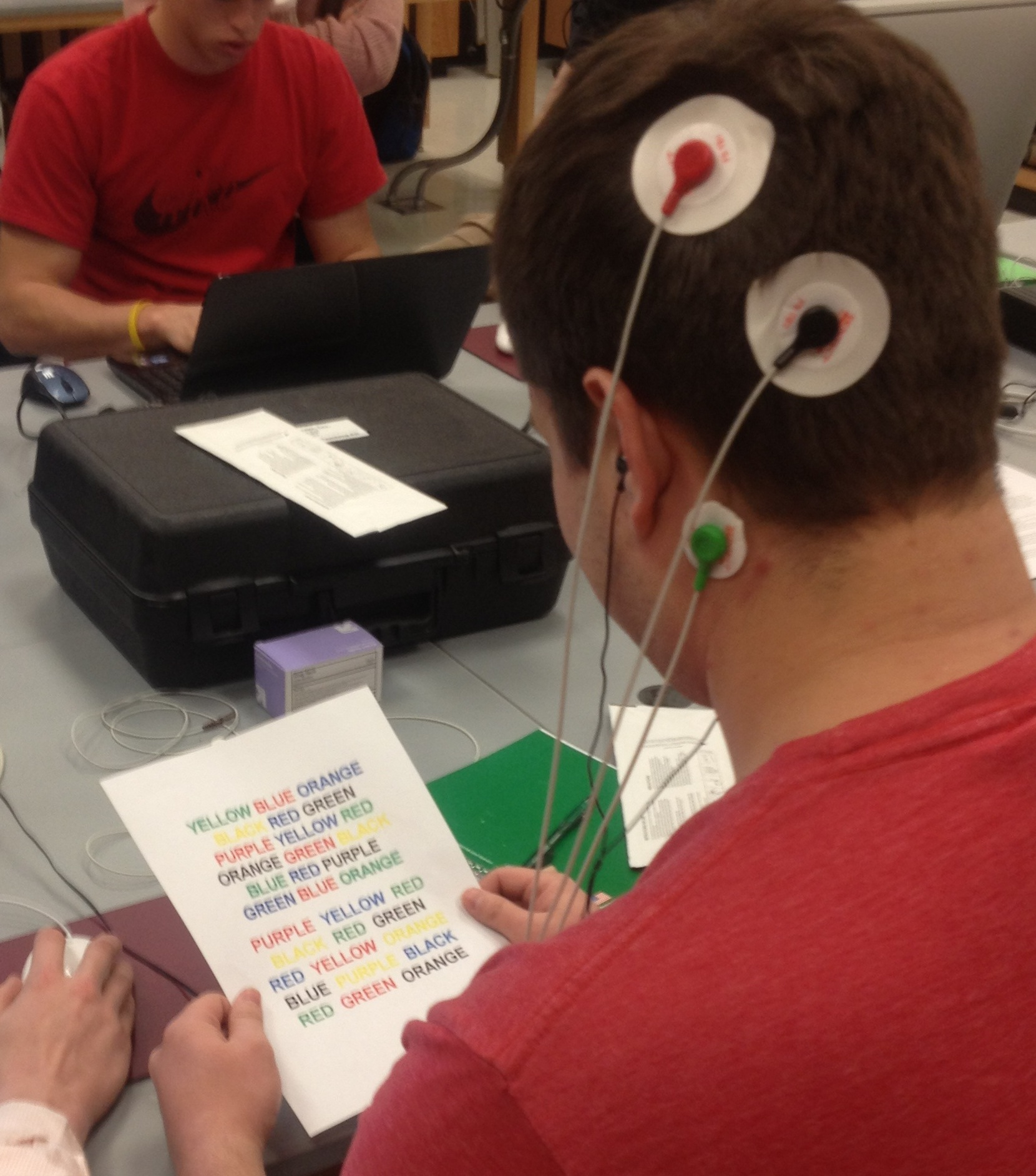
Laboratory experiences in large-enrollment introductory science courses often utilize “cookie-cutter style” laboratory experiences due to the relative simplicity of setting up the lab stations, as well as a need to teach students particular course content. These experiences rarely offer insights into the way science is done in the research setting, resulting in a lack of understanding of the scientific process. In addition, students enrolled in non-majors introductory science courses often fail to see the relevance between what they are doing in the lab and what they are learning in the lecture portion of their course. To address this gap, we developed a laboratory module for a non-majors Human Biology course that provides students with a hands-on, authentic research experience using the iWorx software and hardware for human physiology. Weekly modules were designed to guide students through the major steps of the research process, including reading current scientific literature, developing a testable hypothesis, designing and performing a physiology experiment, analyzing data and presenting their findings to their peers. The described course framework encouraged students to participate in the scientific process, providing them with the opportunity to engage in an authentic research experience. The model described here could be adapted for use with introductory or advanced students, and could be modified to fit any research model available to the instructor. Utilizing the multi-week format described is recommended for students to gain the full benefit from the research-design-revise process.

Holly Bates onto Physiology Labs
@
on